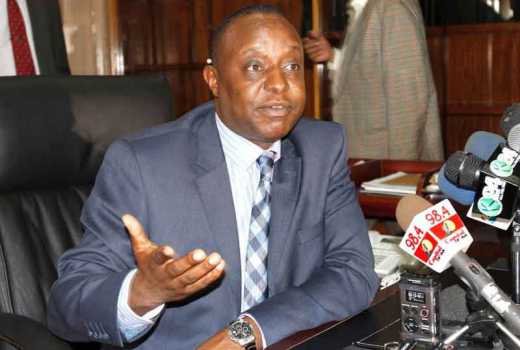×
The Standard e-Paper
Fearless, Trusted News

For every Sh100 that the Government collected in the first five months of the current financial year, Sh59 was used to pay salaries, pensions, and interest on debts.
Data from the Central Bank of Kenya (CBK) shows that while tax revenue grew by about nine per cent between July and November 2017, expenditure on the three items increased by 16 per cent in the same period.